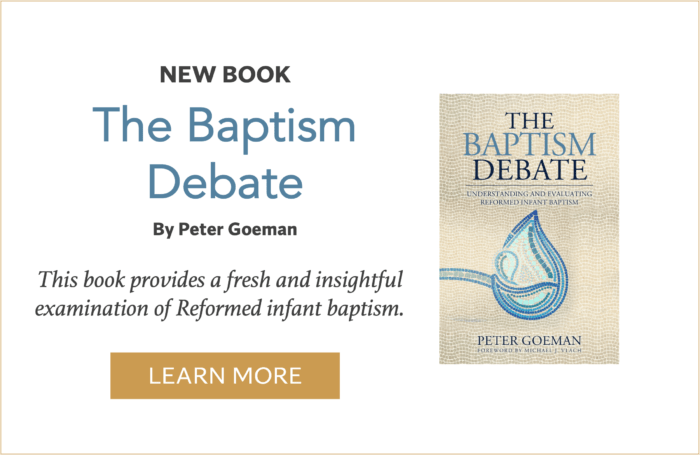Are the Household Baptisms an Argument for Infant Baptism?
Does the mention of household baptisms in Acts provide biblical evidence of infant baptism? Many theologians have argued just that. When arguing for infant baptism, paedobaptists of all kinds (Catholics, Lutherans, and Reformed) will often appeal to the household baptisms in Acts and 1 Corinthians as examples of when infants might have been baptized (cf. Acts 10:1-2; 16:13-15; 16:32-34; 18:8; 1 Cor 1:14-16). In the words of one Catholic paedobaptist:
Catholics (and other advocates of infant baptism) do not claim that these verses prove that the Bible teaches infant baptism. However, a straightforward reading of them suggests that children were likely baptized along with the household or family of which they were a part. Thus, these verses pose a difficulty for Protestants who oppose infant baptism and must be explained differently.

The Household Argument for Infant Baptism Explained
The argument is that when the Bible talks about a household—especially when the phrase includes the modifier “all” or “entire”—every member of that household is included in the description. Thus, when we read that an individual and “all his family” (Acts 16:33) or “his entire household” (Acts 18:8) were baptized, that means, in the words of Joachim Jeremias, “no single member of the household was excluded from baptism” (Infant Baptism in the First Four Centuries, 19–20). If no single household member is excluded in these passages, that would mean that if infants were present in the family, they would also have been baptized.
Paedobaptists appeal to Genesis 17 as support for this idea. In Genesis 17:23, “every male” of the household was circumcised, a statement which includes infants of eight days and older (cf. Gen 17:12). Importantly, paedobaptists claim it is not just the link between baptism and circumcision at play in Genesis 17, but the concept of family solidarity as well. Therefore, any New Testament reference to “his entire household” or “all his family” must refer to all the family members without exception, just like in Genesis 17 (although there, ironically, it is only males). Assuming the exhaustive nature of the word “all” or “entire,” many paedobaptists argue that infants would have been baptized in the household baptism texts mentioned above.
Notably, while many paedobaptists argue an entire household includes children, some paedobaptists argue that slaves were not included (e.g., Jeremias, Infant Baptism in the First Four Centuries, 19–21) This concession seems to be made because, according to the paedobaptist, slaves would have had to make a profession of faith prior to baptism. Thus, although some paedobaptists are willing to include slaves in household baptisms, many do not include slaves because of the need for a profession of faith.
To summarize, the argument that household baptisms support infant baptism can be stated this way:
- All agree that the Bible refers to entire households being baptized (because of three explicit passages).
- It is altogether reasonable to assume that most households (especially in the ancient world) would include children.
- The Bible specifically places children … within the parameters of those persons included in a household.
- Therefore, it is quite likely that baptisms of entire households would include baptisms of children, at least in some cases, if not in all.
- It is quite unlikely that baptisms of entire households (granting the premise that the households can and usually do include children) would never include children.
- Therefore, infants (in the greatest likelihood) were baptized, and infant baptism is sanctioned in Scripture and apostolic example.
Problems with the Household Argument for Infant Baptism
There are two significant points of consideration to the above argumentation. First, in contrast to some paedobaptists, we must point out that household slaves should be included in the household formula. The paedobaptist appeal to Genesis 17 undermines the idea that household slaves would have been excluded from the New Testament household formula. Genesis 17:12–13 specifies that foreign slaves were considered to be a part of Abraham’s household, and thus they were to be circumcised. Therefore, it is inconsistent to say children would be included in the household, but not slaves, when the Old Testament paradigm is to include both.
This is important because adult conversion and baptism require a profession of faith and confession of one’s sins. Even paedobaptists agree with this. However, it is difficult to see every slave professing faith in Christ at the same time their master does. Many of these households had a significant number of slaves. Historians estimate 16–20% of the entire population were slaves. Are we to suppose that in each case, every slave professed Christ immediately along with the master of the house?
Alternatively, a paedobaptist could argue that the master forced the slaves to be baptized without a profession of faith. One can see the obvious problems with that! Therefore, it is understandable why paedobaptists often exclude household slaves from the household formula, even though the Old Testament paradigm certainly included slaves as part of the household.
A second challenge to the household formula is the specific examples where Scripture talks about the whole household, but certain family members are intentionally excluded. The classic example of this is 1 Samuel 1:21–22. The Greek version of this text uses the same language as the New Testament examples in Acts. The story reveals, “The man Elkanah and all his house went up to offer to the LORD the yearly sacrifice and to pay his vow” (v. 21, emphasis added).
Although the Greek of Samuel uses the same household formula as Acts in verse 21, verse 22 quickly reveals that Hannah stayed behind. The reason Hannah didn’t go up with Elkanah was that she was caring for an infant child. Although the text does not say the child stayed with Hannah, we obviously should not include the child as part of “all his house” that went up to offer the yearly sacrifice.
The story of Hannah in 1 Samuel 1 is an obvious example of the household formula being used when at least two individuals (and probably more) were not included. Thus, we see that there are verifiable examples in Scripture that exclude individuals from this supposed household formula. Therefore, one cannot argue, as paedobaptist advocates often do, that the mention of the entire household always means every member of the household without exception.

4 Comments
Neal Warren Stafford
Author wrote “we must point out that household slaves should be included in the household formula.” Really? Take the example of the Phillipian jailor. Is it to be assumed the jailor was so wealthy he could afford slaves while taking a grave yard shift job as a jailor in which one wrong decision would mean his death? I don’t think so. Wild speculation here!
To solve whether or not children were present in households, we use the hermenuetical rule–the clear passages of Scripture interpret the obscure. Do other parts of the NT CLEARLY state children are apart of the household? What about I Tim 3: 4 where a pastor is the one “who manages his own HOUSEHOLD well, keeping his CHILDREN under control” and deacons are to be ones “who manage his own HOUSEHOLD well, keeping his CHILDREN under control” (3:12). In the NT era, children and household are clearly linked together.
Concerning Lydia. All the text says is she was the seller of purple cloth. It doesn’t say she was the manufacturer…nor had employees. Nothing is said of here marital status and to say more than this is pure speculation. Alternatively, Luke mentioning she is a sales person of purple lines could be an identifier. It is possible there were two Lydias in the congregation and the one that sold purple is the one who Paul stayed with. Again wild speculation.
Joshua T Pniewski
this makes ao many other bad assumptions to be taken seriously.
in the case of Hannah in Samuel it said all his house… except…. it clearly says who did not go and this exception alone shows that all the house meant all the house which is why it must be stated Hannah and the infant did not go.
this entire argument is on terrible logic if applied consitently to both your argument as your dissenting view.
Peter Goeman
Actually, this post is a “counter-point” to the prevailing arguments that ANYTIME the phrase “whole household” is used, it means everybody within that household without exception. The simple point (which is completely logical and self evident) is that Samuel uses that phrase, and the whole household did not go up. So, it is simply a matter of observation that what paedobaptists sometimes argue is incorrect. Furthermore, yes, Hannah is said to stay home. But nowhere is the child said to stay home. Are we to infer from the text that Hannah stayed home and sent her child with her husband to Jerusalem? Nobody would understand that. So, even though the text doesn’t say the child stayed home, everyone would assume that is the case. Additionally, it is unlikely in that culture that Hannah and the child would stay home alone. It is likely a servant or two would stay with her. All of that is unmentioned in the text, but completely reasonable, and the most likely interpretation. Still, that is evident despite the phrase “whole household” being used.
Scott Cooper
The Scriptural accounts of “household” baptisms include a number of useful clues that strongly suggest children were not in view. Roman law appears to have prohibited soldiers from being married until the time of Septimius Severus. This would have likely applied to Cornelius and the jailer. The law was probably ignored/abused by many soldiers who fathered children out of wedlock but Scripture also suggests both these men were men of moral character and obedient. Cornelius was a God-fearer and the jailer was obviously obedient to his duty, even willing to kill himself for events beyond his control that made it look like he wasn’t.
Lydia and the woman with her were probably praying at the river because there wasn’t a Synagogue in the town. Jewish customs required a “minyan” or quorum of men to establish a Synagogue and riverside prayer gatherings were the alternative. As a “seller of purple” goods, she was likely a wealthy, industrious, businesswoman. As such, she probably wasn’t married or caring for children. Her “household” most certainly included a number of “slaves” that were necessary for the labor-intensive business she ran. Also, if she were married, in a patriarchal society, it would be very unlikely for her to have invited a group of men she had just met to her home.